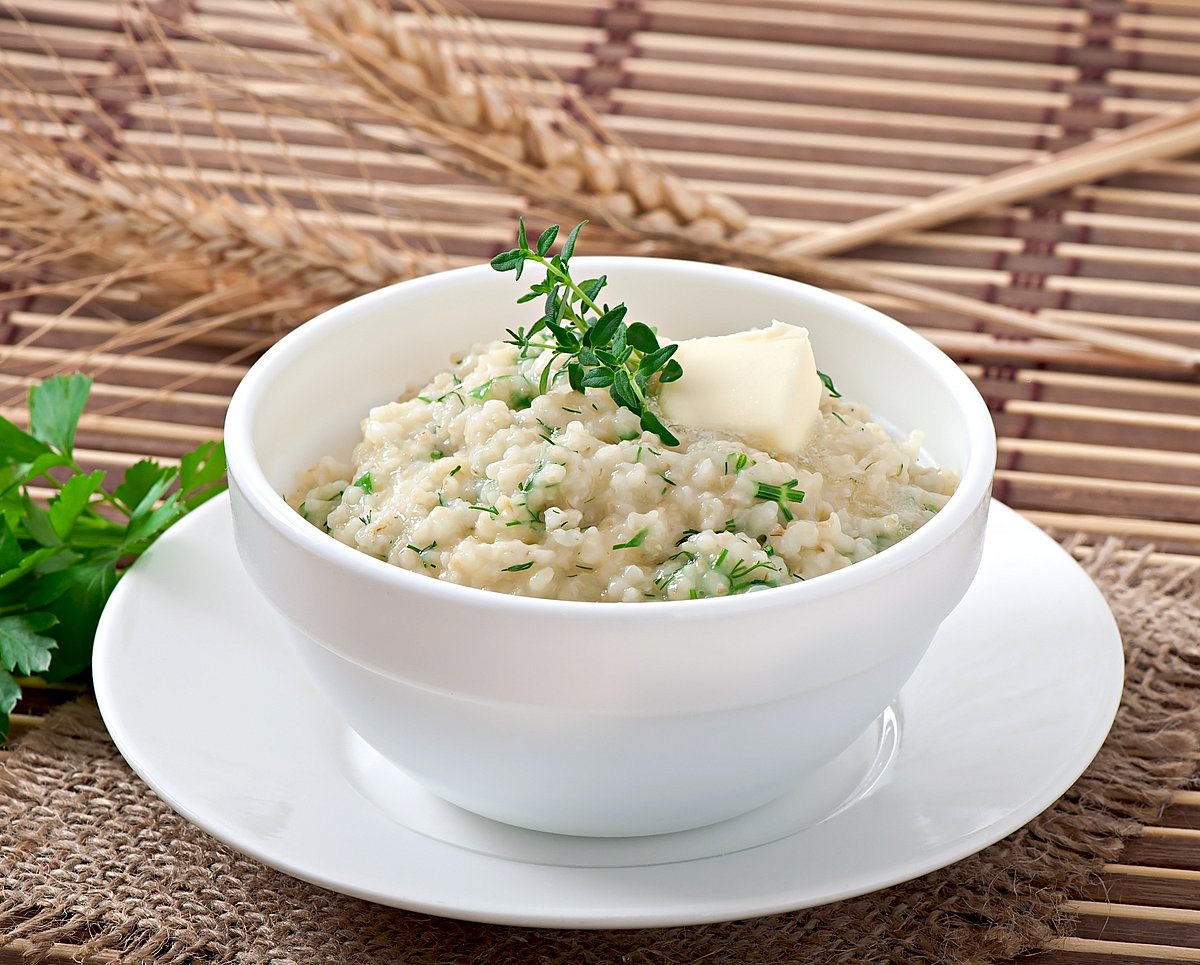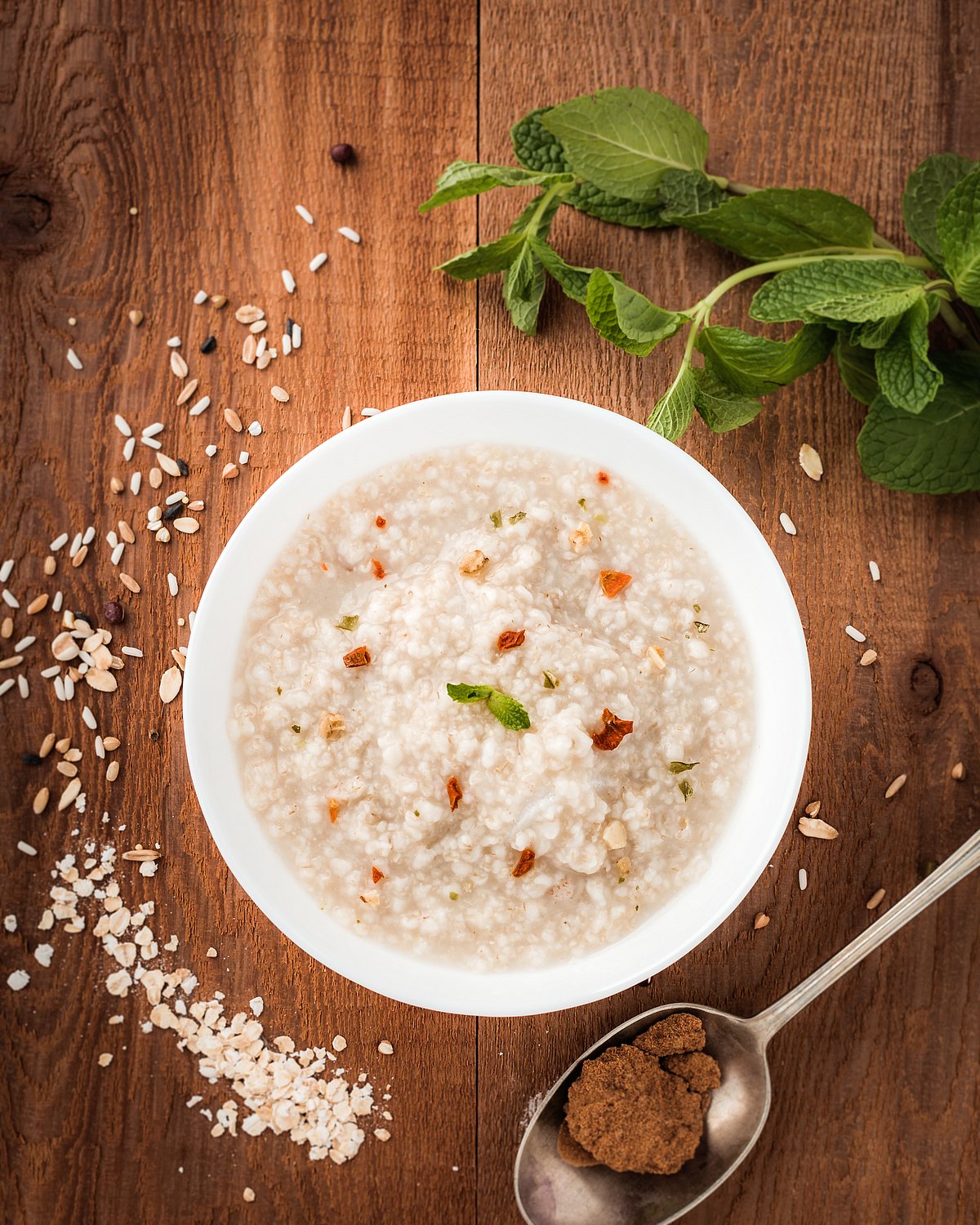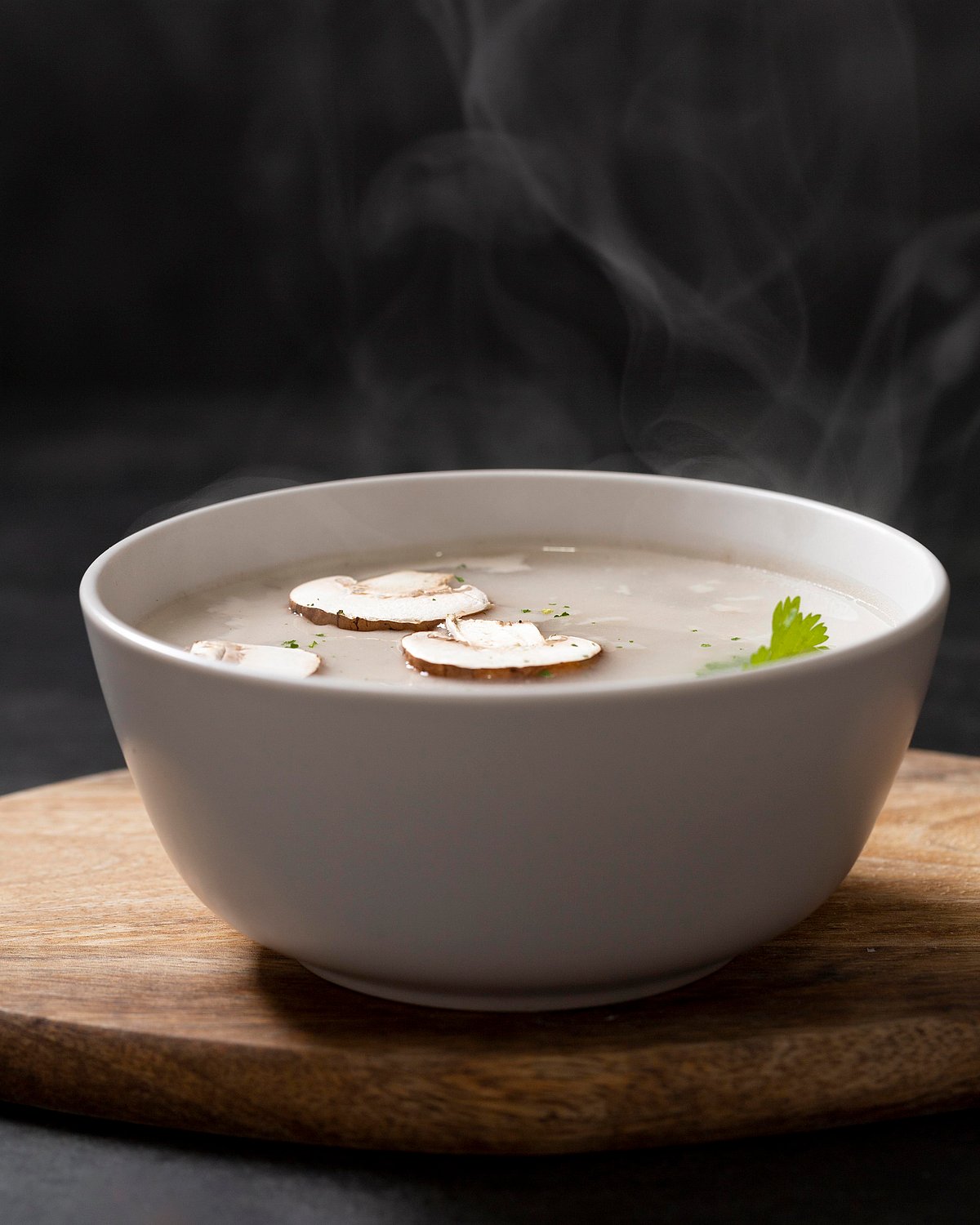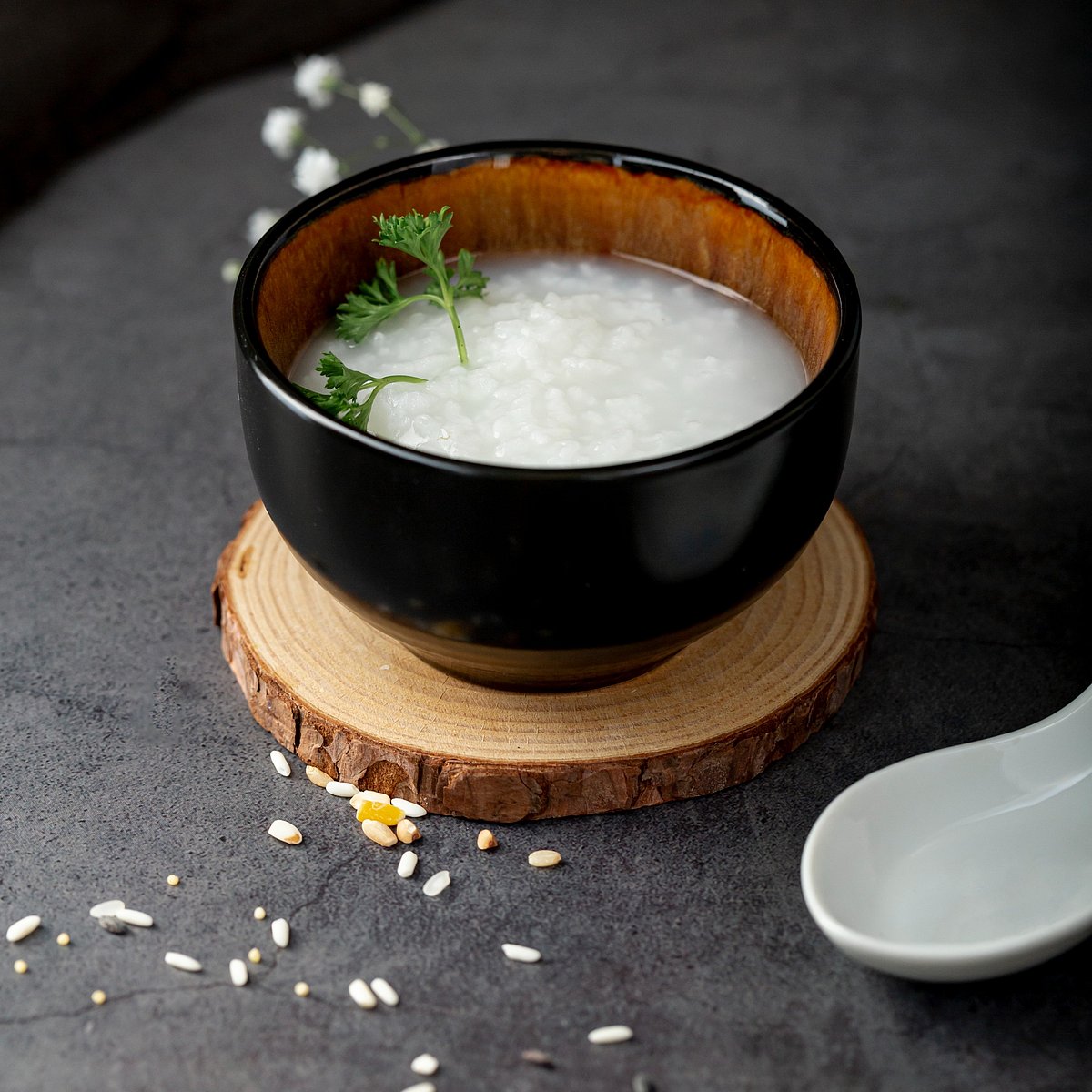Across continents and centuries, one humble dish has quietly sustained communities, healed the unwell, and soothed countless souls: rice gruel. It may be known by many names—pez, kanji, congee, cháo, joke, okayu—but the essence remains the same. A simple combination of rice and water with a little seasoning, transformed by time, texture, and tradition into something far greater than the sum of its parts.
Comfort Cup
In the coastal kitchens of Goa, pez or kanji is a staple of everyday life. Made by boiling rice in water until the grains soften and release their starch, it is eaten plain or paired with coconut oil, spicy pickles, or salted fish. For Goans, it is both sustenance and solace. Particularly during Lent or periods of illness. Once considered food for the poor or the infirm, pez today carries a nostalgic charm, a taste of home that transcends its modest origins.
A little further north, in Maharashtra, pej takes on a slightly different personality and spelling. Thicker and often served sweetened with milk and jaggery for children, or salted and accompanied by papad and green chilli for adults, pej occupies a similar space in local households. As a restorative, gentle meal that nurtures body and spirit alike. Rooted in Ayurvedic principles, it is considered cooling and easily digestible, the kind of food that harmonises rather than excites. In its quiet way, pej reflects the rhythm of a culture that values balance and simplicity.
Go...East!

Travel eastward to Thailand, and rice gruel takes on a new life as joke. Far from the plainness of its South Asian cousins, joke is rich, fragrant, and deeply savoury. A common breakfast dish, it features rice simmered until almost dissolved, forming a creamy porridge that cradles minced pork balls, shredded ginger, fried garlic, spring onions, and often a soft egg that melds into the mix. Sold at street-side carts and busy markets, joke is as much a part of Thai morning life as coffee or conversation. It is nourishment and ritual, eaten by students before school, workers before dawn, and elders seeking warmth before the day begins.
In Vietnam, the story continues with cháo—a lighter, often broth-based version of rice gruel. The Vietnamese, too, turn to it for comfort, particularly during times of sickness or fatigue. A bowl of cháo might contain shredded chicken, chopped coriander, crispy shallots, and a splash of fish sauce, offering a delicate balance between salt, sweetness, and umami. The dish’s role in Vietnamese culture mirrors that of congee across much of East Asia: not just food, but medicine, a liquid lullaby that restores equilibrium to a weary body.
OG Offering

Jok |
No discussion of rice gruel could be complete without mentioning congee, the Chinese matriarch of them all. Congee occupies a revered place in Chinese households, transcending regional boundaries and class distinctions. It can be plain and white, served with a drizzle of soy sauce or sesame oil, or richly adorned with century eggs, pickled radish, pork floss, duck, tofu, and peanuts. At grand hotel buffets from Hong Kong to Singapore, congee appears as a centrepiece surrounded by an array of toppings—each diner personalising their bowl to taste. Yet in Chinese homes, it remains what it has always been: the food of convalescence, of early mornings, of quiet reflection.
Japan’s version, okayu, takes minimalism to an art form. The rice is cooked slowly, with a high ratio of water, until it achieves a smooth, silken consistency. It is often served with tart umeboshi (pickled plum), a sprinkling of sesame seeds, or a single grilled fish on the side. In Buddhist temples, monks begin their mornings with okayu, eating it (sans fish!) in silence as part of daily meditation. In Japanese households, it is fed to infants, the elderly, and those recovering from illness—symbolising care, patience, and continuity. The act of preparing okayu itself becomes a meditation on simplicity and nourishment.
United by Goodness

Rice gruel |
What unites these varied traditions is a shared cultural instinct: that food can comfort, heal, and connect. Despite differences in texture, flavour, and ritual, rice gruel is universally seen as restorative—a dish that speaks to the deepest human need for sustenance and solace. It is often the first food given to babies and the last offered to the unwell or dying. It belongs equally to the poor farmer and the wealthy hotel guest. Its role is less about indulgence and more about empathy, about offering warmth in moments of weakness.
From a nutritional standpoint, these porridges have much in common. Slow-cooked and easily digestible, they extract the maximum energy and comfort from minimal ingredients. Yet beyond sustenance, rice gruel represents continuity—a culinary thread running through human history, linking ancient rituals with modern appetites. Whether ladled from a street vendor’s cart in Bangkok, a family pot in Goa, or a buffet spread in Hong Kong, each bowl tells the same essential story: of care distilled into simplicity.

Pez |
In an age obsessed with culinary reinvention, rice gruel endures as the antithesis of excess. It demands no complex technique, no rare ingredient, and yet delivers something profoundly complete. Across cultures and climates, it reminds humanity of the power of plainness. And of the quiet dignity of food that asks for nothing but gives everything.
So whether it is pez, pej, joke, cháo, congee, or okayu, the sentiment remains unchanged: rice and water, patience and love. The world may be divided by flavour, but when it comes to comfort, we are all, it seems, stirring from the same pot.










